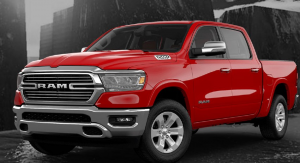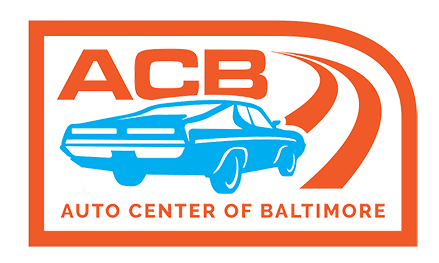How to Get a Better Deal on a Used Car from a Dealership
Posted Friday, May 10, 2024

When aiming to purchase a used car, negotiating a reasonable price at the dealership is essential. This blog offers strategic guidance to help you achieve the best possible deal.
By understanding the market, preparing adequately, and mastering negotiation techniques, you can significantly reduce the price of your next vehicle.
Follow these expert tips to improve your negotiation skills and ensure you leave the dealership with both a car you love and a deal you feel great about.
Preparation Before Visiting the Dealership
When planning to purchase a used car, preparation is essential. Let us guide you through setting a budget, securing financing, and handling a trade-in, if applicable, before stepping into a used car dealership.
Setting Your Budget
Knowing your finances is vital before looking for a used car. A clear budget helps prevent overspending and narrows your search to vehicles within your price range.
Consider all aspects of the car purchase, including tax, insurance, and potential maintenance costs, to set a realistic budget.
Getting Pre-Approved for Financing
Obtaining pre-approval for a loan from a bank or financial institution before heading to the dealership offers several advantages.
First, it clarifies how much you can spend, keeping you focused on financially feasible cars. Second, with pre-approved financing, you gain leverage in negotiation, as dealers see you as a serious buyer with funds ready to be spent.
Negotiating Your Trade-In
Knowing its market value is critical to trade in your current vehicle. Research your car’s value using online tools and get it appraised at a few dealerships to understand its worth.
When discussing a trade-in, be prepared with facts about your car’s condition and market price to negotiate effectively. Don’t be swayed by low offers; use your research to argue for a fair trade-in value.
At the Dealership: Making the Right Impression
When visiting a used car dealership, making a positive first impression is vital to navigating negotiations and securing the best deal on your next car purchase.
Top of Form
First Impressions Matter
When you arrive at the used car dealership, your demeanor and appearance set the tone for interactions. Approach the situation confidently and show you are serious about purchasing a used car. Being polite yet assertive can help establish a respectful negotiation atmosphere.
Test Drive and Inspection
Before discussing prices, insist on a test drive and a thorough vehicle inspection. This step is essential for assessing the car’s condition, performance, and suitability for your needs. Check for:
- Engine performance and any unusual noises
- Brake functionality and alignment
- Condition of tires and all lights
- Signs of rust or body damage
- Interior electronics and features
Consider bringing a trusted mechanic to evaluate professionally, especially for older or high-mileage cars.
Asking the Right Questions
While inspecting the car, engage the dealer with specific questions to learn more about the car’s history and condition:
- Can you provide the vehicle history report?
- Why is the car being sold?
- Are there records of regular maintenance?
- Has the car been involved in any accidents?
Asking these questions will give you a clearer picture of what you’re potentially buying and signal to the dealer that you are an informed buyer.
This can play a crucial role in the negotiation process, as it shows that you have done your homework and are aware of the car’s worth and potential issues.
Negotiation Strategies
Effective negotiation at a used car dealership can significantly impact the final price of your vehicle. Understanding key strategies—such as making a calculated initial offer, highlighting any car defects, and knowing when to walk away—can help you secure a better deal and make a confident purchase.
Top of Form
Opening the Negotiation
When you begin negotiating to purchase a used car at a dealership, your first offer sets the stage for the entire negotiation. It’s essential to make this initial offer lower than what you're willing to pay but still reasonable enough to be taken seriously by the seller.
This tactic, known as anchoring, helps to keep subsequent negotiations closer to your target price range. Prepare to explain why your offer is fair, using data like market values and the car's condition as evidence.
Emphasizing Defects and Concerns
Once you've made your initial offer, the next step is to discuss any defects or issues you've noted with the car. Whether it's cosmetic damage, mechanical concerns, or high mileage, pointing out these flaws can be a strategic move to negotiate a lower price.
Be specific about each issue and how it could affect the car’s performance or aesthetics. This approach can prompt the seller to consider a price reduction to account for necessary repairs or diminished value.
Walking Away
Knowing when and how to walk away from a negotiation is as important as any other part of the process. If the talks are not moving in your favor or the dealer is not meeting your terms for the car purchase, be prepared to leave.
This decision isn't just about expressing dissatisfaction; it's a powerful negotiating tool that can sometimes bring the dealer back to the table with a better offer. Always keep a calm and polite demeanor, letting the seller know you decide based on your needs and budget.
Legal and Paperwork
When purchasing a used car from a dealership, reviewing all relevant documents thoroughly is essential. Ensure you check the vehicle history report and sales agreement closely. Ask for any available warranty or service records.
Make sure you understand any warranty coverage and the dealership's return policy. This careful review helps protect your interests and ensures your car purchase is as transparent and secure as possible.
Top of Form
Securing Your Ideal Used Car Deal
Successfully negotiating at a used car dealership doesn't just save you money—it also enhances your buying experience.
By applying the strategies outlined in this guide, such as doing thorough research and knowing when to walk away, you can secure a favorable deal.
Remember, every dollar saved is closer to your ideal car purchase. For more tailored advice or assistance, contact Auto Center of Baltimore today and let us help you make the best purchase decision.

